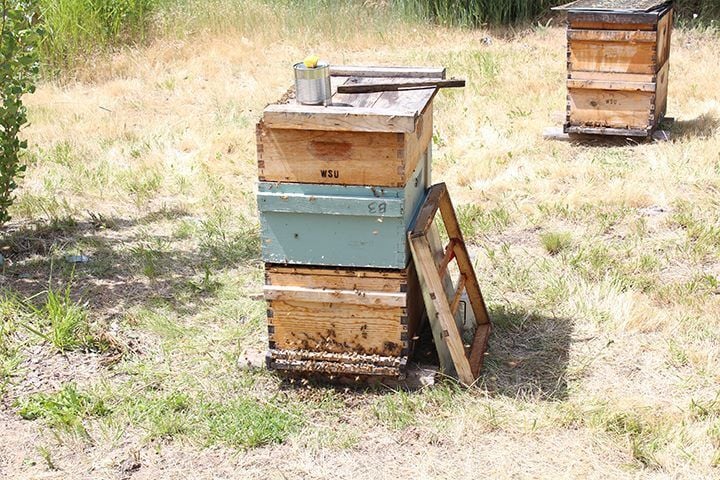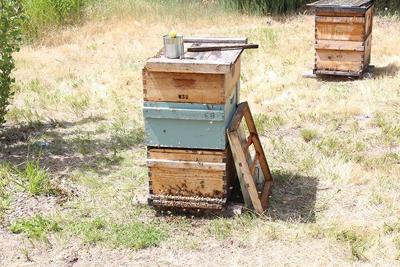PULLMAN - Honey bee colonies in the U.S. could face losses of up to 70% in 2025, according to Washington State University (WSU) entomologists in a release.
WSU said the report is alarming because losses have ranged from 40 to 50% historically.
“Losses have been increasing steadily,” Priya Chakrabarti Basu, WSU assistant professor of pollinator health said. “Pollination demands haven’t gone down, so beekeepers face tremendous pressure to keep the same number of colonies to meet those needs.”
Basu highlighted several stressors impacting bees, including nutrition deficiencies, mite infestations, viral diseases and possible pesticide exposure during the previous pollinating season.
Brandon Hopkins, WSU’s P.F. Thurber Endowed Distinguished Professor of Pollinator Ecology, is involved with varroa mite control, commercial management practices and new research on bee nutrition.
He said the mites feed on the pupae inside the hive, which often results in the death of the pupae and a reduction in the numbers of future generations.
Additionally, the mites transmit viral diseases and feed on adult honey bees, weakening them and increasing their susceptibility to diseases.
Fruit growers may be directly impacted along with California almond growers. Almonds are the biggest crop for honey bee pollination, which happens in February and March.
“The almond industry frequently asks for strong colonies,” Hopkins said. “But this year, growers are desperate. Anything with live bees in a box is in demand because the industry is short on supply. I haven’t heard of that since the early days of colony collapse around 2008.”
The WSU Honey Bee and Pollinator Program, which operates from a research facility in Othello and other sites, is at the forefront of research addressing critical issues affecting honey bees. The program's multifaceted approach includes studying bee health, nutrition, and innovative beekeeping practices.
A major focus is on combating Varroa mites, deadly parasites that threaten bee colonies. WSU researchers are developing a biocontrol fungus to kill Varroa mites without harming bees, collaborating with private industry to test new treatments.
Furthermore, WSU is exploring honey bee pathogens and diseases. Their research aims to understand these threats and find ways to bolster bee immune systems, employing nutritional supplements and innovative practices.

Courtesy: Washington State University Bee Program
The WSU bee team encourages beekeepers and those concerned with pollinator health to get involved. They invite the community to learn more about their efforts, participate in citizen science research and support the program.
For more information on how to participate or support the initiative, interested individuals are encouraged to reach out to the WSU Bee Program.























